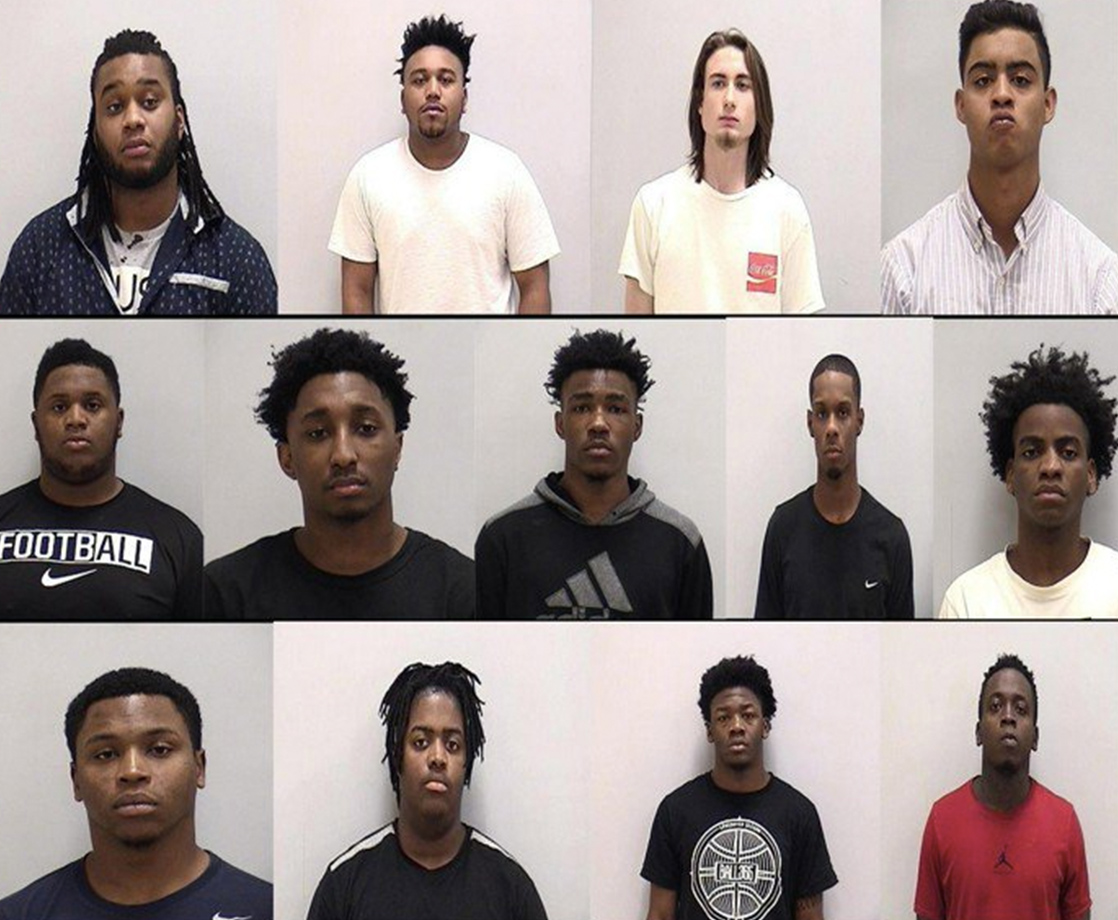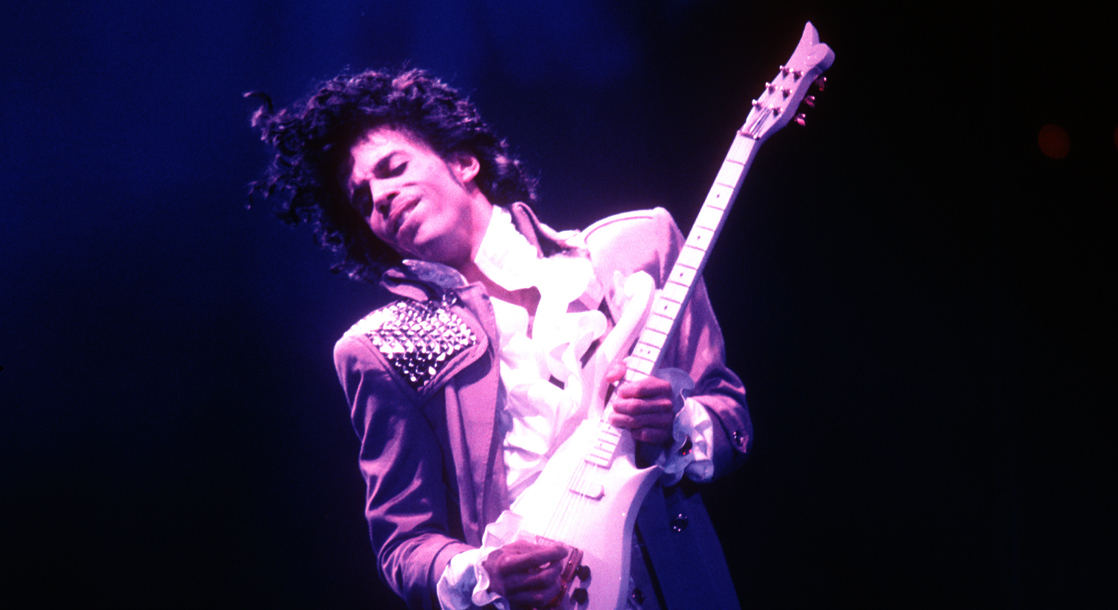The mass-arrest of more than 70 attendees at a Georgia house party over New Year's weekend is drawing the ire of parents, civil rights leaders, and cannabis advocates alike, and once again spotlights the life-altering consequences of America's unequivocally racist War on Drugs.
According to Atlanta's WSB2 News, the ordeal started at a 21st birthday party at an AirBnB-rented home in Cartersville, Georgia, a suburb 40 miles outside of Atlanta. At around 2 AM on December 31st, a nearby neighbor called police over what they thought was a nearby gunshot. When local law enforcement officers arrived at the scene, official reports indicate they saw people standing on the property's front lawn and porch. Without a warrant, officers then entered the home and began interrogating the (mostly black and brown) party-goers.
"I thought they were just going to shut the party down and everyone was going to go home," Deja Heard, the 21 year-old woman who rented the home and threw the party told WSB2 News. "All of us are innocent."
In the police report released days after the arrests, Cartersville cops say they smelled cannabis outside, and that when they entered the house they saw small bags of weed in plain view. When police could not find one person willing to claim ownership of the tiny bags of ganja, they arrested and charged each and every attendee with possessing less than an ounce of cannabis, claiming that the drugs were "within reach or control of everyone present."
After calling in the Bartow County Sheriff's Office for backup, officers detained everyone in the house, putting over 70 people, ages 15-31, in zip-ties, police vehicles, and, eventually, jail cells. The whole group of young people sat behind bars, held on cash bail, as the ball dropped and the New Year began the next day.
How many of the 70 were minority? https://t.co/EtrYiZkWxC
— shannon sharpe (@ShannonSharpe) January 2, 2018
According to local NBC affiliate 11 Live, it wasn't until 5PM on New Year's Day that all of the birthday party attendees were released on bond and allowed to return home.
In subsequent reports and photos from the taxpayer-funded harassment, police say and show that, in addition to approximately eight ziploc baggies that each appear to contain roughly 1-3 grams of cannabis each, they also found at least one small baggy of a white substance they claim is cocaine and three handguns, at least one of which was not registered. Still, all reports indicate that the minor cannabis crimes have been the only charges filed, with no connection yet made to the original report of gunshots that brought police to the scene in the first place.
Instead, every account from those arrested claims that police entered the home illegally without a warrant and detained party-goers for no reason other than the tiny amount of cannabis and the color of their skin.
"We did not even know what we were going to jail for," one of the arrested party attendees told WBS2 News.
Due to the arrest, a number of the party-goers have already lost employment, and that's not to mention the continued consequences still on the table at a potential trial date.
Juxtaposed with New Year's momentous start to recreational cannabis sales in California, the Georgia mass-arrest is a clear example of how much work is still left to be done in correcting the racist policing policies that have for decades accompanied the controversial plant.
In the days since the arrest, police have released mugshots of the defendants, showing rows upon rows of young black and brown women, prompting pundits from across the country to wonder what might have happened if 70 suburban white kids were caught with a few grams of ganja at a New Year's house party.
70 people arrested in Cartersville, Ga on New Years for less than an ounce. Felt like with all the positive New Years posts, we needed a reminder that theres still a long way to go for some of us still. pic.twitter.com/QILwQ2uOWG
— TheBestDank (@TheBestDank) January 2, 2018
Because cannabis laws vary not only by state, but by city, the house party attendees now face up to one year in jail and a fine of up to $1000. On the other hand, if the party had been thrown in Atlanta, just 40 miles away, where cannabis is decriminalized, one adult could have claimed responsibility for all of the weed at the party and walked away with a small civil fine.
The NAACP and other civil rights organizations and leaders have begun speaking up and taking action to help give a voice and sufficient legal defense to the group now being referred to as the "Cartersville 70."
MEDIA ALERT concerning Cartersville arrests of 70 citizens by Bartow County Law Enforcement. #Cartersville70 pic.twitter.com/cla6bvCZKx
— Georgia NAACP (@NAACPGA) January 3, 2018
To make matters worse, a number of high profile news reports about the mass-arrest have harped on the party's "lingerie" theme and other minorly controversial aspects of the party, instead of the unfounded mass-arrest of almost 100 young people.
So as we move into the New Year with unbridled optimism about a future free from cannabis prohibition, it is important to remember that the fight for legalization goes hand-in-hand with criminal justice reform. And no matter how many legal sales are made in California, Colorado, and elsewhere, there is still immense amounts of work that needs to be done elsewhere in the U.S.
A crowdfunding campaign has been set up in an effort to help the Cartersville 70 with legal fees and any lost wages due to their arrest. You can donate to their cause here.
Follow Zach Harris on Twitter











